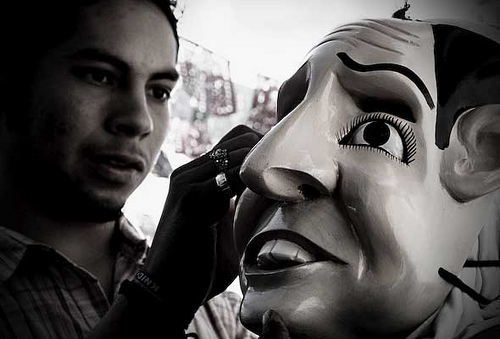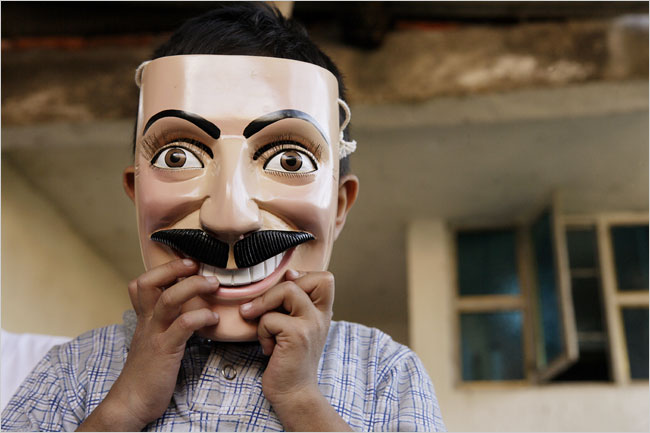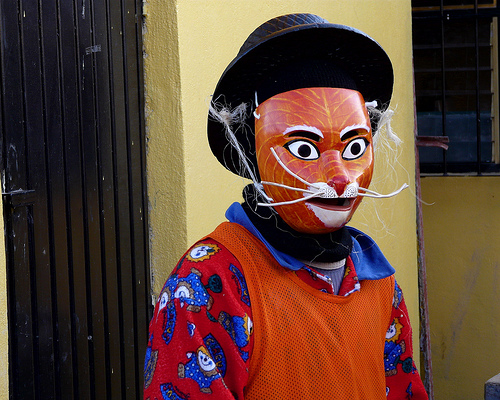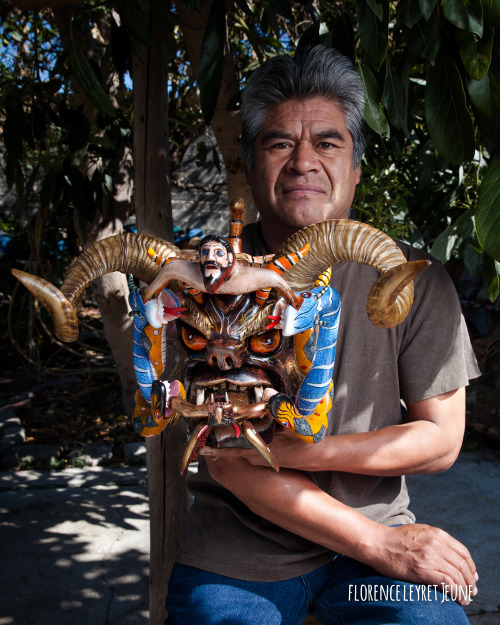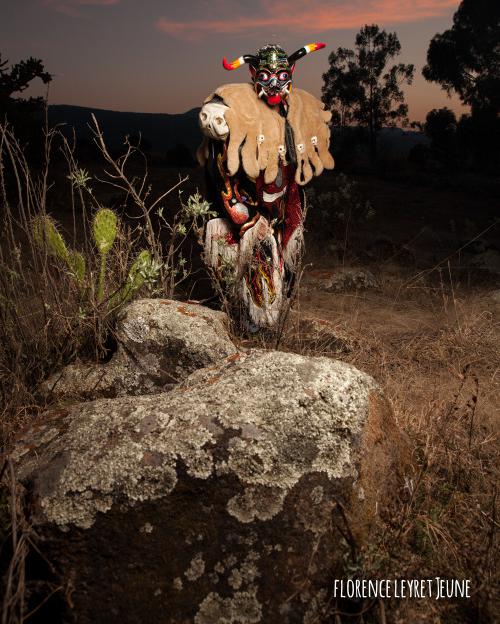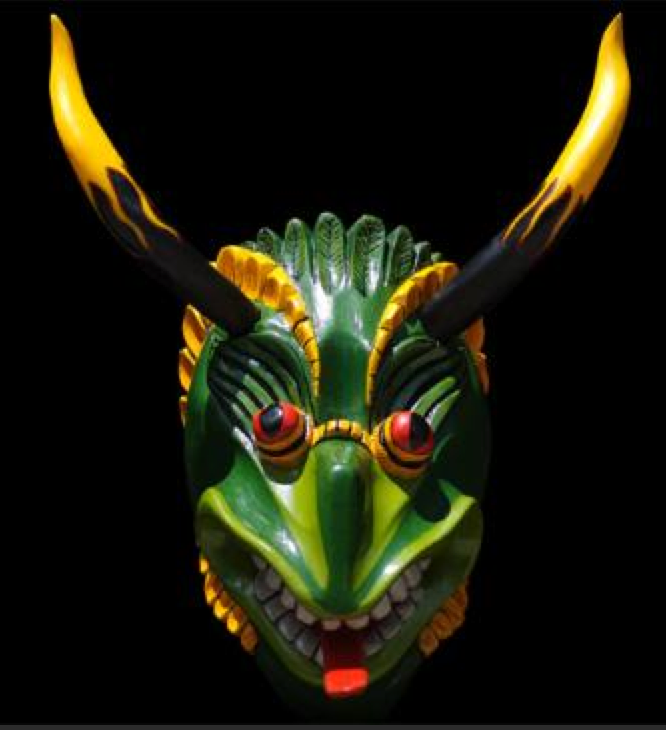 | ||||||
Tocuaro
JUAN HORTA GALLERY " THE SPIRIT OF MICHOACAN " - Tocuaro, Michoacan, Mexico
There are many mask makers in Mexico, and Juan Horta is considered one of the best. Don Juan Horta died in 2006. But his legacy lives on today.
Juan made his very first wood mask when he was 10 years old, as he wanted so badly to take part in his hometown Pastorela (a Christmas celebration where masks take relevance each year). That deep, innocent wish took the young Juan Horta to one of his uncles, a peasant who made masks only as a hobby for his own family and friends. Who was to say then that Juan's perseverance would make him one of the best mask makers in the world?
Juan Horta has exhibited his art throughout Mexico. His masks were selected by the "Ballet Folclorico de Mexico", always featured in their world-wide performances. He is also a multiple first prize winner of Mexico's Mask Maker Competition. Among his many achievements, he has been a featured artist at the school of the Art Institute of Chicago and the Field Museum of Natural History.
Don Juan works primarily in wood, usually painting and lacquering the finished mask.
Nowadays his five sons , residing with he and his wife in Tocuaro, Michoacan, Mexico work alongside Juan to preserve the heritage of this fine craftsmanship for many generations of Horta sons to come.
Each mask is unique, a collector's item with gallery owners and individual collectors traveling from all over the world to his taller in Tocuaro, Michocan to buy his masks.
The name of the town, Tocuaro, comes from "Tocua", which is a certain class of stone. The best of Mexico's mask makers lives in Tocuaro, about 8 miles around the Lake from Patzcuaro. The house and gallery of Juan Orta Castillo is on the street with the bus stop, and the church, and walk south, into the middle of the village. Mr Ortiz has won Mexico's National Mask Maker competition a few times. His masks are unique in every way. The detail and creativity are unsurpassed. The town is also noted for it's embroidered textiles.
"TALLER DE DON SALVADOR TERA E HIJOS"
- Excellence is Wood Sculpturing - Tocuaro, Michoacan, Mexico
Almost 30 years working in the fine art of wood sculpturing, and striving for excellence have created an unparalled reputation in Michoacan for the late Don Salvador Tera and his four surviving sons as the best fine art, wood sculpturers in Michoacan.
Once a mask-maker from the famous mask-making town of Tocuaro, Michoacan, Don Salvador saw the opportunity to integrate and build upon his mask-making art form into the fine art of wood sculpturing. To achieve excellence in his trade, Don Salvador applied himself for five years at the workshop of wood sculpturing in Bellas Artes, Mexico City. A devoted father, he passed on this knowledge of the wood sculpturing art form to his four sons. The respect his four sons have for their father is immediately evident when you walk into their "taller" (workshop) and see the alter created in reverence to their this forward-thinking, talented, hard-working man.
Today, the works of art of the Taller de Don Salvador Tera e Hijos is a team work. These four talented artists each take part in the completion of their exquisite creations applying their unique, individual talent. The Tera brothers have works of art that are permanently exhibited in churches throughout Mexico as sacred art. Even in the Vatican, a masterly sculptured Madonna of Lourdes by the Tera brothers can be found.
Their marvelous replicas of renowed artists such as Michel Angelo and Leonardo Davinci, among others, will in time become keepsake treasures of increasing value from generation to generation for those sensitive enough to recognize the beauty of this exceptional long lasting art form.
Red cedar and mahogany from the coasts of Mexico and Central America are the primary woods that become some of the most amazing works of art.
The Tera brothers accept custom orders for hand-carved wooden doors and busts made from your photographs.
Felipe Horta, is a celebrated maskmaker, one of four in his village Tocuaro.
Felipe began carving at the age of 12 by watching his father, Eustacio Horta, carve. His father learned from a man in the village who is now 95 years old.
Felipe's masks are used for decorative purposes as well as in local, traditional dances. He primarily uses Copilillo (indigenous to Michoacan, a.k.a. Copal) and Avocado wood in his carvings.
